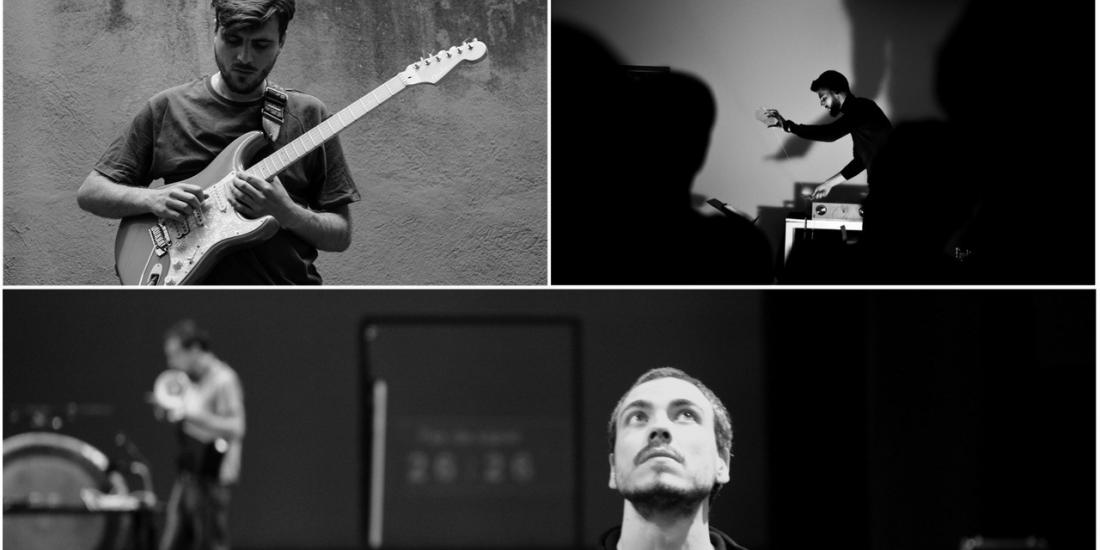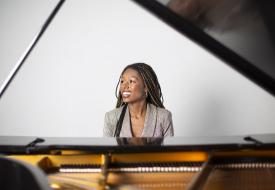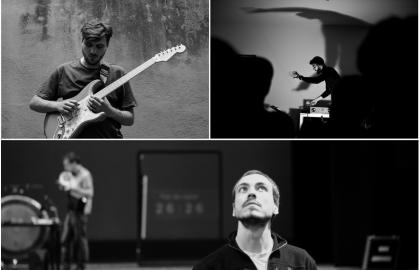How was born this project ?
This project was born, initially, as a simple wish to collaborate among us three, a “composer” and two “performers", in order to prepare a new performance of Autophagy II, for augmented percussions, augmented guitars and electronics. At the same time from the beginning it started being clear to all that what we were after was rather a broader collaboration between us, with the aim to develop a different dialogue between performers and composers.
What do you find the most exciting about this trio?
This trio features e-guitar(s), percussions and electronics, which as a start is not a very common ensemble at all, but one with a huge expressive and creative potential. We found that it can offer a great variety in timbre, and all of those instruments appear, in different declinations, in a very broad set of musical contexts, both written and improvised, which we are not trying to erase, but rather let them be an influence and inspiration to our work
What does each musician bring to the group?
We all are an intersection of various musical background and experiences. Some of these backgrounds are shared among the three of us, but others are pretty unique. With this project we are trying to create an organism that doesn't ignore the differences, but aims at keeping those edges and work with them in a constant, active and intensely collaborative way. Everyone is bringing their knowledge, experiences and personal research in.
What do you find the most exciting about music?
For sure the sonic and expressive possibilities of this ensemble, and after many years of working in pretty scripted context, having an ensemble allowing for the freedom of redefine our own working way is exciting and refreshing.
Could you briefly introduce the programme?
The program is a journey around some timbral and expressive features of our instruments, hopefully presenting them under a slightly unconventional way. In the first part everyone prepares a solo, built around some particular timbral possibility of our instruments. In the second part, we will play all together in a free improvisation: no more space between performers, composer and score, we really try to become just one organism.
How do you feel about playing at Bozar?
It is a great opportunity to play in such a context, with an unusual program. It is very important that the festival believes in more open collaborative concert projects, such as this one.
What would be your biggest dream?
We think, in spite of the difficulties of these last years, we are living our dream right now. Being able to make music together, in a context that is stimulating not only artistically, but also from a personal, human point of view, getting to know each other and grow together, it really is an enormous privilege.


